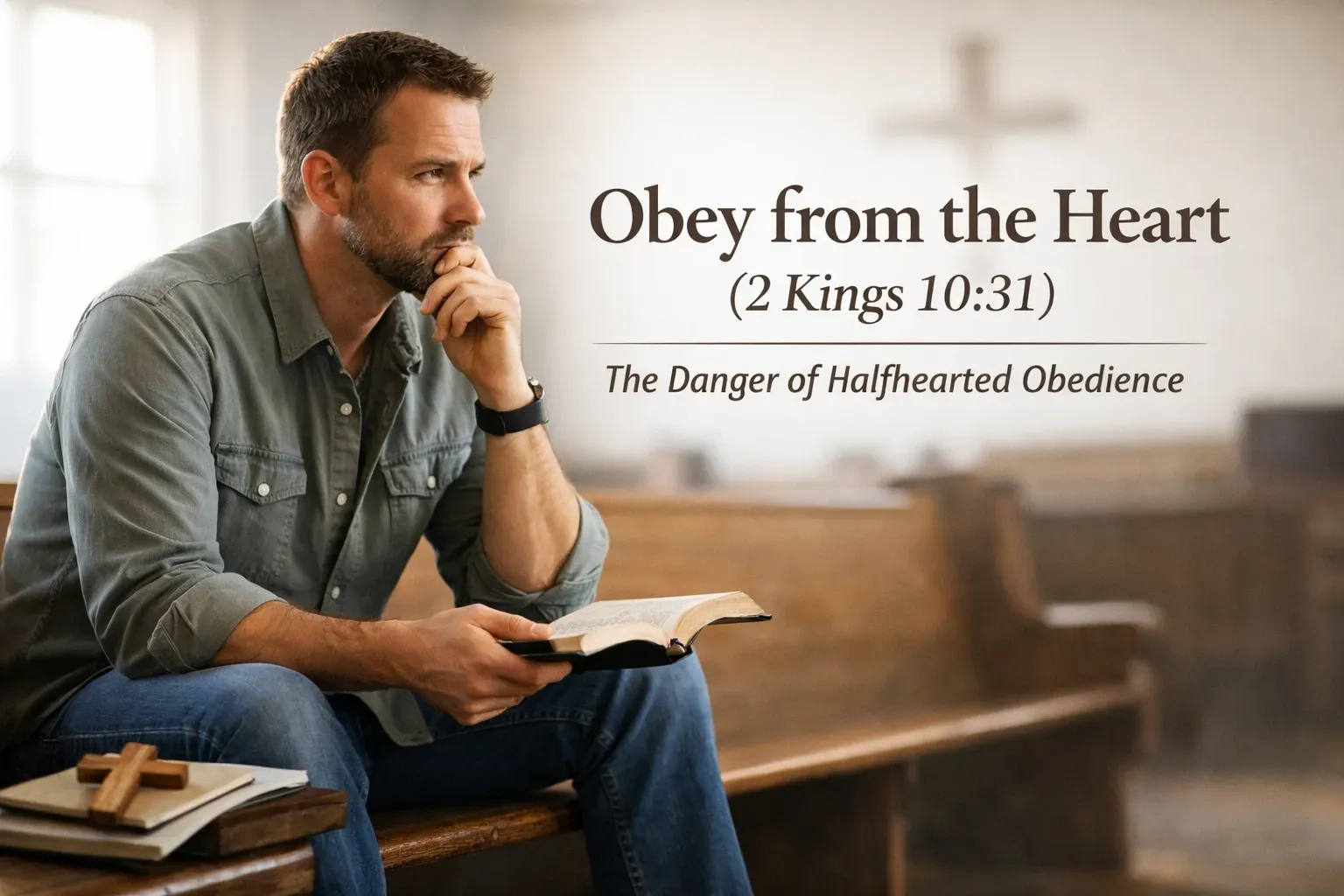IS A CALL NECESSARY? by Herbert Kane
The term missionary call should never have been coined

Much depends on the kind of call one has in mind. The word call is used in many different ways in the New Testament. In most instances it refers to Christian life, not service. There is a general call of God (Ro 9:24-26) which became articulate in Christ (Lk 5:32). All believers are called to be saints (Ro 1:7), and the ultimate purpose of such a call is that they might be conformed to the image of Jesus Christ (Ro 8:30). In the meantime all believers are called to grace (Ga 1:6), peace (1 Co 7:15), light (1 Pe 2:9), hope (Eph 4:4), glory (1 Th 2:12), holiness (1 Th 4:7), liberty (Ga 5:13), and suffering (1 Pe 2:20-21).
In addition there is a second kind of call—a call to Christian service. This is not addressed to all, but only to those who are called upon to leave their ordinary occupation and devote themselves full time to what Peter called “prayer and the ministry of the Word” (Acts 6:4). All are called to be saints (Ro 1:7); not all are called to be apostles (1 Co 12:29). Paul in his epistles is careful to point out that he was a genuine apostle (1 Co 9). Moreover he insisted that he was an apostle by the will (1 Co 1:1) and calling (Ro 1:1) of God. He did not choose this high calling (1 Co 9:16-18), nor was it conferred on him by others (Ga 1:1).
He was an apostle “by the will of God,” and he described himself as having been made a minister of the gospel (Eph 3:7). He was appointed to be a preacher, apostle, and teacher (2 Ti 1:11). It is true, of course, that he labored with his hands to support himself and his colleagues (Acts 20:34); but he did not regard tent-making as his vocation. He never referred to himself as a “tent-maker by the will of God,” though certainly he did not take himself out of the will of God by resorting now and again to his old trade. He was an apostle; he made tents simply to pay the bills. And to his dying day Paul could never adequately express his utter amazement at the grace of God that made him a preacher and an apostle (1 Co 15:9-10; 1 Ti 1: 12-14).
The so-called Macedonian call (Acts 16:9-10) wasn’t a missionary call at all. Paul had been a missionary for years before that. His call to missionary service coincided with his conversion, when God said to Ananias, “He is a chosen instrument of mine to carry my name before the Gentiles and kings and the sons of Israel” (Acts 9:15). This call was later confirmed by the Holy Spirit when He said to the leaders of the church in Antioch: “Set apart for me Barnabas and Saul for the work to which I have called them” (Acts 13:2).
What then was the nature of the Macedonian call? It was not a divine call at all; it was simply a human call for help. The call came not from God but from a “man of Macedonia.” The plea was, “Come over to Macedonia and help us.” This episode had nothing whatever to do with a missionary call. It was simply a matter of guidance to a man already in full-time missionary service. Paul had reached the extreme western end of the continent of Asia and had several options open to him. Apparently he had not given any thought to crossing over into Europe. Instead he attempted to turn eastward again, first into the Roman province of Asia and then into Bithynia: but the Holy Spirit prevented him in both instances. Where should he go? Obviously he was in need of special guidance if he were to take the gospel for the first time into Europe. The decision he was about to make was of such momentous importance that he required unusual guidance. This God gave him in the vision of the man from Macedonia. It is a great pity that this so-called Macedonian call should ever have been equated with a missionary call.
The term missionary call should never have been coined. It is not Scriptural and therefore can be harmful. Thousands of youth desiring to serve the Lord have waited and waited for some mysterious “missionary call” that never came. After a time they became weary in waiting and gave up the idea of going to the mission field.
Does this mean that there is no such thing as a call of any kind? No, indeed. There is a call, a very definite call, to the service of God on a full-time basis. Jesus “called” Peter and Andrew to follow Him. “Immediately they left their nets and followed him” (Mt 4:20). Later He “called” James and John. “Immediately they left the boat and their father, and followed him” (Mt 4:22). When Luke describes the same event, he says: “And when they had brought their boats to land, they left everything and followed him” (Lk 5:11).
It seems clear from this passage that this “call” involved a clean break with their previous occupation and launched them into a brand new occupation, that of “fishers of men.” Apparently it was not possible for them to be fishers of fish and fishers of men at the same time. This does not mean that there was anything wrong with their previous occupation or that their new occupation was to be regarded as “higher” or “holier.” It was a completely different occupation that would require all their time and energy. In present-day parlance it would be “full-time Christian service.” It is worth noting that these four men and the other apostles never went back to their old occupations.
This idea of a call to Christian service is further strengthened by our Lord’s attitude toward those who took it upon themselves to volunteer for His service. One fellow in a moment of enthusiasm said, “I will follow you wherever you go.” Jesus replied: “Foxes have holes, and birds of the air have nests; but the Son of man has nowhere to lay his head” (Lk 9:57-58). Apparently the man withdrew his offer at that point.
Another person volunteered, “I will follow you, Lord; but let me first say farewell to those at home.” Jesus replied: “No one who puts his hand to the plow and looks back is fit for the kingdom of God” (Lk 9:61-62).
There are those who object to the terms secular and sacred as applied to the vocational life of the Christian. To the dedicated Christian, they say, all vocations are sacred because whatever he does, he does it unto the Lord (Co 3:23). This, of course, is true. It does not, however, invalidate the distinction that the New Testament seems to make between secular and sacred ministries.
In several passages of his epistles Paul seems to make a distinction ! between the “spiritual” and the “secular” or “material” (Ro 15:27; 1 Co 9:11). In his own case Paul was conscious of having been appointed to a special ministry (1 Ti 1:12), that of teaching and preaching the Word (2 Ti 1:11). Moreover, he recognized the possibility that he might fail in the ministry (1 Co 9:27) and expressed the hope that he would be able to complete it (Acts 20:24), which he seems to have done (2 Ti 4:7).
He spoke of Epaphras as a “faithful minister of Christ” (Co 1:7; 4:12), a description he obviously did not apply to everyone. He reminded Timothy of his consecration to the gospel ministry when the elders laid their hands on him (1 Ti 4:14). There is nothing in the New Testament to suggest that men in secular employment were ever set apart to their work by the laying on of hands. This seems to have been reserved for those whose lifework was directly connected with the preaching of the gospel and the life of the church.
Apparently the apostles felt that there was something “sacred” or “special” about their ministry, for when the daily distribution of food threatened the unity of the church in Jerusalem, they refused to get involved in “serving tables.” They said, “It is not right that we should give up preaching the word of God to serve tables” (Acts 6:2). Instead they decided that they would continue to devote themselves to “prayer and to the ministry of the word.”
It is difficult to escape the conviction that the early church regarded “prayer and the ministry of the word” as being the equivalent of what we now call “full-time Christian service ” All Christians are expected to work and witness for Christ regardless of their vocation; but only a few are called to leave everything and follow Christ in order to give themselves unreservedly to prayer and the ministry of the Word. It is important to preserve this distinction in a day when egalitarianism threatens to do away with all distinctions between the clergy and the laity in the Christian church.
J. Herbert Kane, Understanding Christian Missions











